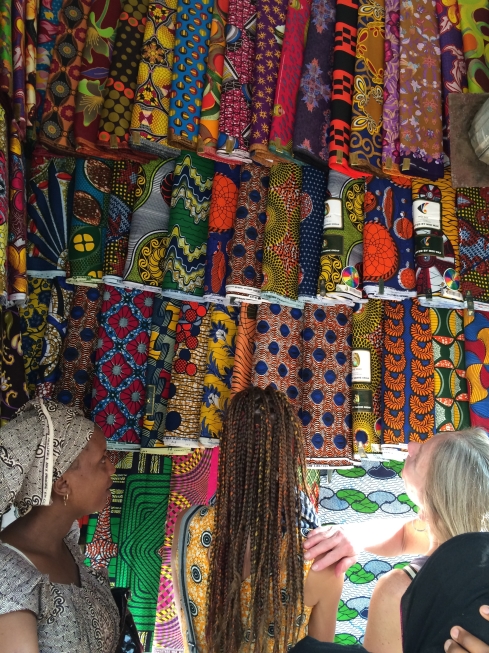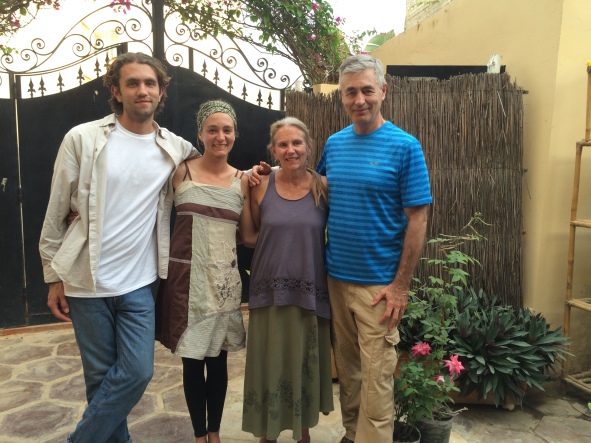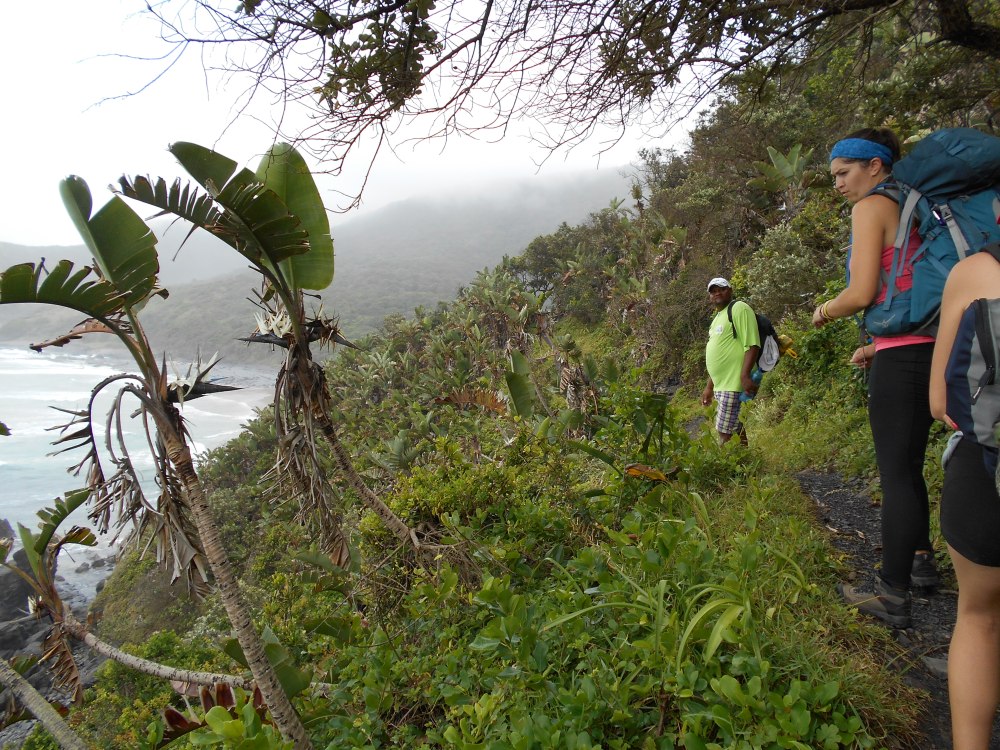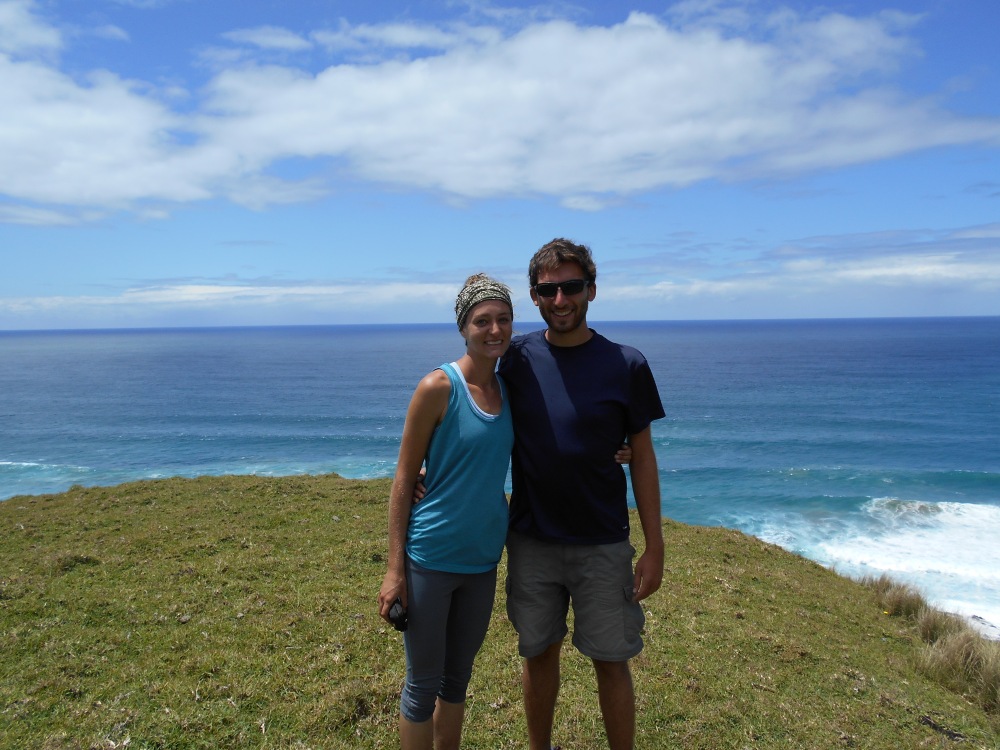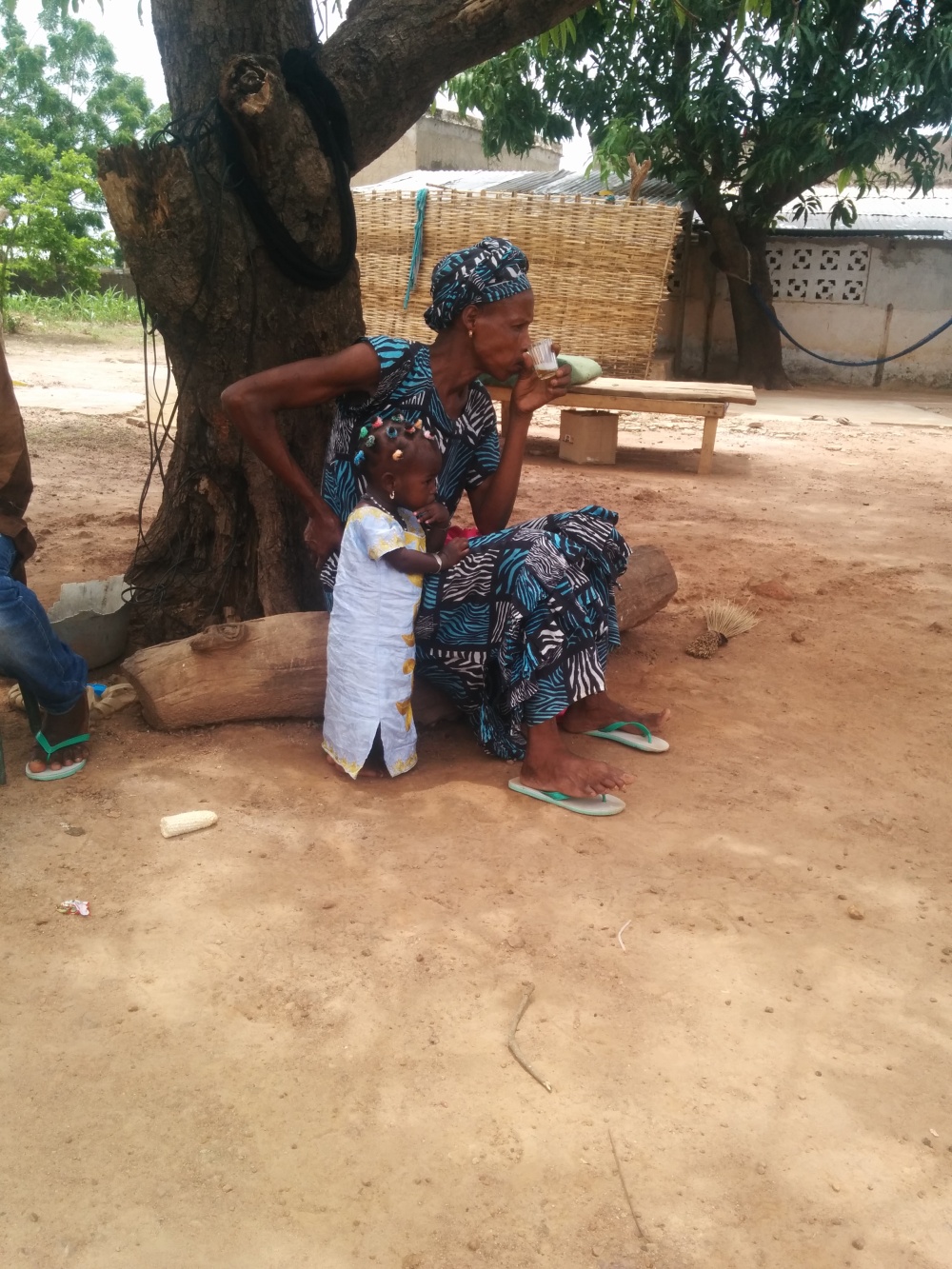After a substantial hiatus, I’m back in the States and hoping to bring some closure to this blog.
Before leaving country, every volunteer has a “COS week” in Dakar spent getting final medical check-ups, closing out grants, returning property to Peace Corps, etc. It’s a bittersweet time. I had wanted to write a post about leaving during this time, but it was just too hard. For better or for worse, I didn’t want to spend more time dwelling on my goodbyes. I also couldn’t quite wrap my mind around the situation. I was in a strange limbo that didn’t feel real. I kept catching myself thinking about a future that didn’t exist. “When I get back down to Kolda…” Fill in the blank. I talked with many COS-ing volunteers about this mental block and it seemed to be something we all shared. I guess it was hard to believe for many reasons — the two years went by so quickly, we didn’t know what the next chapter would hold, and most of all I don’t think many of us anticipated how hard it had been to say goodbye.
And it was hard.
I left my family, my friends, my hut, many of my belongings, and a piece of my heart in my former home.
My last day in village was a roller coaster of emotions. I’m going to do my best to paint a picture here.
I woke up, early. My last weeks at site I rarely slept in past 6:30. Mostly because it was hot season (think, 97 degrees by 9am), but also because my mind was full of racing thoughts.
I went to buy breakfast and found my mom cutting vegetables outside. “Today is a big day, so your mom is cooking” she said to me. My mom is an incredible cook but only cooks for special occasions — holidays, special guests, and I guess, my last day. She told me to hurry back so we could start the henna.
I got back only to be sent out again to buy some cooking oil for my mom. Older people in Senegal never go out to buy things if they can send a child instead. My mom usually refrains from sending me out, but today she was holding nothing back. After I bought the oil and was walking back to my compound, I thought about how people were going to see me carrying the oil and tease me by asking me if it was my turn to cook today. Sure enough, three people called out to me “So you’re cooking lunch today?” which I affirmed, just to make them laugh.
This little exchange made me think about how well I know Senegal. If you know exactly what joke someone is going to make before they make it, I’d say you have a pretty good grasp of the culture.
I’ve never done henna in Senegal before, and my mom insisted I get it done before I leave. Henna is a dye used on the body for special occasions. It’s something that people do for weddings, but also before long journeys. I didn’t realize how time-intensive the process would be. As my mom cooked, her friend worked tirelessly on my henna. She put small pieces of tape on my feet in a tiny and intricate design that took about two hours for each foot. After that she put the henna on and wrapped my feet in plastic bags. The henna had to sit for several hours. She did my hand too, and the whole thing (with a short break for lunch) took about five hours.

My henna
Because the design was on the bottoms of my feet, I couldn’t walk around while it was setting. So I was stuck sitting in my compound, which was incidentally exactly what I wanted. I had made the rounds of all of my friends/work partners in the days leading up and told everyone that my last day I’d be at my house if they wanted to come say goodbye. Many people said they would come and a few actually did.
The way that people say goodbye to each other in Senegal shows some things about the culture. Many people avoid saying goodbye altogether because they say it’s too hard. I experienced this. My namesake and host sister avoided our goodbye. She left to visit family in the Gambia almost a week before I left. She told my mom that she was running away — that she just couldn’t be here for me leaving. She braided my hair one last time and the next day she was gone.

My last braids
One of my PCV friends and I were discussing this after we left site. She was saying that it’s strange that people in Senegal can talk about death so casually but think that saying goodbye is too hard. I guess the two are connected — Senegal is a place where death is so common it’s hard to know if you’ll see someone again. Even if I come back to Senegal soon, there’s a good chance I won’t find everyone that I left here.
When you are saying a real goodbye and you don’t know when you’ll see someone again, you shake hands with the left hand instead of the right. In Senegalese culture the left hand is considered the dirty hand — you are never supposed to use it to hand someone something or to eat, etc. The reason you say goodbye with the left is because it’s so unclean that it means you are obligated to see that person again someday to make things right.
As I sat in my compound waiting for my henna to set, my host brother made tea and my mom came and sat next to me. She asked about my real mom, and said that she knew she must be happy I’m coming home. “Your mom there misses you and will be happy, but tell her that your African mom has a big problem. I will be so lonely without you.”
I’d been on the verge of tears all week and it was hard to keep it together. The sun cooled and I sat, drinking in the images of my compound for the last time. Around sunset my mom helped me take off the henna and I was finally able to walk again. I went to my hut and tried to fit in some packing before dinner. The power was out (of course), so I knew that packing in the dark later was not going to be fun. Thankfully the moon was bright. I never realized the power of the moon until I came to Senegal and experienced life without lights.
I was frantically folding and prioritizing when my host brother Djiby walked in. “You’re going to fit all that into one bag?” He gave me a skeptical look. “Come eat dinner you can do this later.” I walked out to find one of the most delicious dinners I’ve had in Senegal. Macaroni with onion sauce and lots of meat. I ate as much as I possibly could. While we were eating a few people showed up to say goodbye.
The hardest one was Thiane, who I’ve mentioned in this blog before. She was my old site-mate’s host sister, and her father passed away my first year here. We had become very close during my time in Senegal. She became my confidante — someone that I felt I could talk to about virtually anything — problems with my family, the stresses of everyday life, etc.
She sat with me for a little while, and then said it was time for her to go. As I was walking her out, she lost it. “You stop here,” she said, though I had been planning to walk most of the way to her house with her. She gave me a quick hug and then burst into tears as she was walking away. I wanted to chase after her, to tell her I would come back someday, to try to comfort her somehow. But crying is often something people are ashamed of in Senegal, and I could tell she didn’t want me to follow her. I had to let her go.
Back at my house, things were winding down for the night. It was getting late, but I was wired. I said goodnight to my family, knowing that I would see them in the morning. I continued packing in my room by candlelight. Djiby came to hang out with me while I was packing at first, but he realized he was distracting me too much so eventually left. I asked him to come back in the early morning to say goodbye, and he agreed.
I slept maybe two hours that night. My PCV friends and I who were all heading to Dakar for COS had rented out a sept-place so the car came directly to my house. The next morning when I heard it pull up outside my compound I felt my heart sink. I took a last frantic look at my hut, trying to burn it into my memory, grabbed my things, and tried to summon my emotional strength.
My family members were waiting near the car. I shook their hands and said thank you. When I got to my mom she pulled me into a hug and we both started crying. Djiby told us not to cry and gently guided me into the car. Just like that, I left everything I had known for the past two years.
My mom had said that she would come to Dakar to say goodbye one last time, and in my naïveté I believed her. As I mentioned earlier, it’s not uncommon for Senegalese people to avoid goodbyes. As I rode away I didn’t know that it was the last time I’d be seeing her. And I guess that did make it easier, in a way. I called her a couple of times while I was in Dakar to see if she was coming, and it soon became clear that she wasn’t. I was upset but I understood. Sometimes it really is just too hard to say goodbye.
I said goodbye to my Senegalese home and family on April 19th, over two months ago. But the sadness still hasn’t left me, and I don’t know that it ever will. My last night, when I was sitting with Thiane and a couple members of my family and talking about how hard it was to leave, I told them that I don’t know how I feel about living in another country for so long.
“I won’t be quick to stay long in another place,” I told them. “You get so comfortable and content with your life and then you have to leave so suddenly. I don’t like it.”
“But it’s good.” Thiane told me. “Because now you’ve seen something else, you’ve seen how other people live, and that’s important. And it’s time for you to go now because this isn’t your place. We are happy you came here and we won’t forget you, but you need to go home to see your people there.”
“But it’s just so hard,” I said, unable to phrase it any more eloquently in my near-tears state.
“Sometimes the hard thing is the right thing,” she said.

Thiane and me

